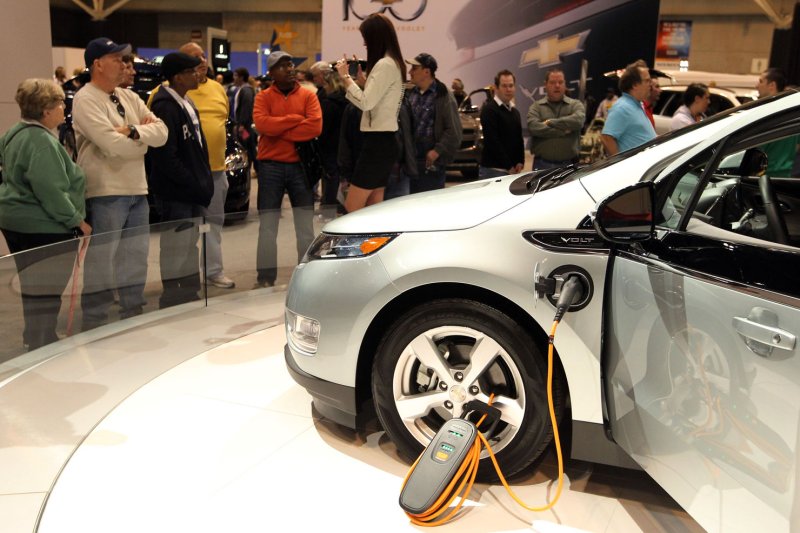The pace at which the electric vehicle market is expanding could start to eat into global oil demand in the next few years, an energy consultant group said. File photo by Bill Greenblatt/UPI. |
License Photo
Sept. 5 (UPI) -- The global demand for oil will peak within the next five years, driven largely by the increased market presence of electric vehicles, a top energy consultancy said.
DNV GL, a Norwegian company providing risk management advice, said in an energy transition outlook that global demand for energy in general will level off by 2030 and then move lower as efficiency improves. For oil, demand peaks in 2022 because of the rise in the use of electric vehicles, though energy trends might not be enough to stave off the impacts of climate change.
"Until 2050, the electricity share of energy demand will grow from 18 percent to 40 percent yet this transformation is not happening fast enough," Ditlev Engel, the CEO at DNV GL, said in a statement. "Speeding up the acceleration of electrifying sectors like heat and transport will be one vital measure to put the brakes on global warming."
Swedish automaker Volvo said this year it was marking an end to a vehicle line powered solely by the internal combustion engine. Tesla said in its second quarter release that orders for two of its electric vehicle lines were up 15 percent in July when compared with the quarterly average.
Two million electric vehicles were on the road globally last year, with most of those in the U.S., European and Chinese markets.
Using the pace of transition from horse-drawn carriages to fuel-powered vehicles in the 20th century as a benchmark to measure growth, the International Monetary Fund said motor vehicles could vanish from markets in advanced economies within the next 20 years. For the shift in vehicles themselves, the IMF said dramatic retooling may be necessary for the industry.
Economists at the Organization of Petroleum Exporting Countries revised their forecast for global oil demand for 2018 higher by 1.28 million barrels per day to 97.7 million barrels per day. Total oil demand for 2017 is expected to be 96.49 million bpd and most of the demand growth next year comes from developing countries.
DNV GL said it's gas, however, that's on pace to become the largest single source of energy.
"Major oil companies intend to increase the share of gas in their reserves, and DNV GL expect an accelerated shift by 2022 as they decarbonize business portfolios," the consultant group's report read.















